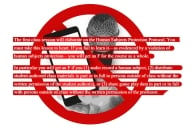You have /5 articles left.
Sign up for a free account or log in.
Students expect their teachers to be prepared to lead, but sometimes that simply isn't the case.
With a wide variety of teacher preparation programs and an increasing demand for educators, alternative preparation options are springing up alongside existing traditional programs. And leaders at a new graduate school of education are hoping to make sure teachers are in the classroom as soon as they can prove they're ready.
The Woodrow Wilson Academy for Teaching and Learning, which the Woodrow Wilson Foundation on Tuesday announced it will create, will be a competency-based program, letting students graduate as soon as they’re deemed able to handle all of the school’s main competencies. Rather than following the course work traditionally given to students in graduate classes, incoming students will be assessed on how well they can perform a task or demonstrate a skill. They will then be able to follow a customizable path of education and continue to be assessed until they are deemed ready for the classroom.
Arthur Levine, former president of Teachers College at Columbia University and president of the Woodrow Wilson Foundation, said the emphasis will be less on the amount of time potential teachers spend in graduate classes or credits earned, but rather on ensuring that teachers are ready to handle any number of scenarios.
To start, the school will prepare teachers in science, technology, engineering and math classes, which are fields Levine said he believes are understaffed throughout the country. The curriculum could expand to cover other subjects.
He said other graduate schools don’t have the resources to try this kind of education, meaning the new program will serve as both an alternative option for those dedicated to becoming reputable teachers and a pool of research on effective teacher training methods.
“It’s geared toward accomplishing one competency at a time,” Levine said. “They go through the module according to how quickly they master those skills. It may take a short period of time or it may take a long time.”
The school will work in partnership with the Massachusetts Institute of Technology to conduct research on teacher and school leadership education. The new methods used in the school will serve as an opportunity to perform experiments and create new findings in a field of research some say lacks depth.
The research will be part of a new institute at MIT, called the MIT PK-12 Initiative, which will provide support to STEM teachers in all levels of K-12 education.
Currently, the Woodrow Wilson Foundation supports teaching fellows in five states. Levine said not only do their teachers stay in school systems for longer periods of time, but the students in classes led by the fellows also perform better than those taught by teachers who came from more traditional programs.
He described the new program as being not a competitor, but a "public library" from which other schools could borrow lessons, all of which will be open source and available to the public.
"We want it to be replicated, but we don't want to replicate it ourselves," Levine said.
An alternative approach
Alternative teacher preparation programs like the Woodrow Wilson Academy have seen a sharp rise in popularity over the past few years. Teach for America, which is selective and admitted more than 5,000 corps members in 2014, trains new teachers for up to 10 weeks over the summer before sending them out to some of the poorest parts of the country.
But some participants in programs like TFA use their time teaching only as a stepping-stone to determine what they actually want to do in life, rather than as an actual teacher prep program. Corps members are only required to teach for two years, and fewer than a third stay in the positions past that time period.
Levine said the Woodrow Wilson Academy only will take in 25 students during its first year, which is slated for 2017. Those student will have an opportunity to work with partner school districts on the North Shore and South Shore of Massachusetts, as well as in the greater Boston area.
While the class size may increase in future years, Levine said it will remain highly selective, and the high bar for teaching candidates falls in line with recent research. A new report from the American Institutes for Research (AIR) found that the more selective the program, the more likely that graduating teachers will remain in the profession and that students will be successful in the classroom.
The report’s author, Jenny DeMonte, a senior technical assistance consultant specializing in teacher preparation and licensure at AIR, said that while retention was low for teachers coming out of TFA, it was “concerning” how their students were more successful compared to students in classes with traditionally prepared teachers.
DeMonte said teacher preparation developed in a way that didn't necessarily account for the skills teachers would need to master in order to effectively run a classroom. However, DeMonte noted that the new school isn't exactly an original idea, given that competency-based education has been widely used in teacher preparation programs, although perhaps not on this level.
But more concerning to DeMonte is a potential lack of teachers. She estimates that the U.S. will need roughly 150,000 new teachers annually to keep up with demand, and each teacher needs to be properly trained to deal with any and all kinds of students.
“If you’re a kid in school and you got the new teacher, you want to know for certain that he or she is capable to lead a classroom on day one,” she said.
Thorough teacher preparation can make a difference in terms of keeping teachers in schools and not losing them to other careers. DeMonte’s report highlights the Urban Teacher Residency United Program in San Francisco, a program that only accepts about 11 percent of all applicants. After five years, 82 percent of the program’s teachers were still working in the profession, a retention rate that is rarely seen in teaching.
A similar program, the Urban Teacher Center based in Baltimore and Washington, DC, is only five years old, but has already proven itself to be successful, with schools frequently requesting that members of the institution work in their classrooms.
Jennifer Green, CEO and founder of the Urban Teacher Center, said 95 percent of the course work given to teacher candidates is clinical, and all other readings are given to back up those practical experiences.
With more than 1,500 hours of clinical experience in urban classrooms, the program's graduates are quickly established as quality teachers, and are prepared to deal with students immediately. Because the program works with urban schools, which Green identified as in being in need of well-trained teachers more than other school districts, the teachers are prepared to handle most scenarios.
She said while the program will take longer to complete than TFA or other alternative programs, her center attracts students who are dedicated to becoming great teachers, not just teachers.
“The argument is, ‘what kind of teacher do you want to be and how well do you want to serve students who deserve outstanding teachers?’” Green said. “If you’re looking at teaching as a possible career or if you have a level of insight into education, then you’ll understand that becoming a good teacher is an investment of your time and resources.”
How will a completely competency-based program fit into the current field of teacher education? Proponents of traditional teacher preparation programs have defended their methods, saying it’s impossible for a teacher to be successful without both clinical experience and a background in the methods and practice of teaching.
Rod Lucero, the vice president for member engagement and support at the American Association of Colleges for Teacher Education, said traditional programs encourage students to gain as much clinical practice outside of the program as possible, whether it's through tutoring or another way to become involved with K-12 students regularly. He noted that graduate schools also are adding more student teaching to the curriculum.
He said without understanding what it means to be a good teacher, it’s going to be difficult for new teachers to comprehend exactly which skills they will need to master.
“Not every biologist is going to be a good biology teacher, not every psychologist is going to be a good psychology teacher,” Lucero said. “It’s in the pedagogy that quality teaching has, and that’s what teacher preparation programs do well, what universities do well. And so alternative programs really don't do that part and it kind of goes to the mentality that anybody can teach.”
But Levine doesn’t believe anyone can teach. Applicants for the Woodrow Wilson Foundation’s teaching fellowships must go through days of interviews, simulations and other assessments to be accepted, and he believes a similar process will take place to be admitted to the new academy.
“We’re really trying to get a sense of who these people are, and how well they perform as teachers,” Levine said.








